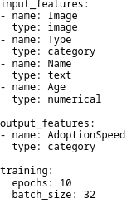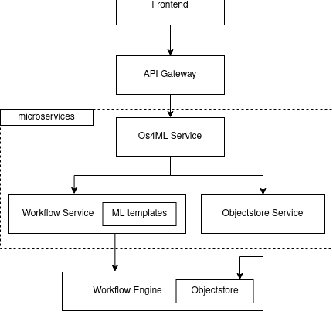Dennis Rall
A Comparative Study of Open Source Computer Vision Models for Application on Small Data: The Case of CFRP Tape Laying
Sep 16, 2024Abstract:In the realm of industrial manufacturing, Artificial Intelligence (AI) is playing an increasing role, from automating existing processes to aiding in the development of new materials and techniques. However, a significant challenge arises in smaller, experimental processes characterized by limited training data availability, questioning the possibility to train AI models in such small data contexts. In this work, we explore the potential of Transfer Learning to address this challenge, specifically investigating the minimum amount of data required to develop a functional AI model. For this purpose, we consider the use case of quality control of Carbon Fiber Reinforced Polymer (CFRP) tape laying in aerospace manufacturing using optical sensors. We investigate the behavior of different open-source computer vision models with a continuous reduction of the training data. Our results show that the amount of data required to successfully train an AI model can be drastically reduced, and the use of smaller models does not necessarily lead to a loss of performance.
Towards Democratizing AI: A Comparative Analysis of AI as a Service Platforms and the Open Space for Machine Learning Approach
Nov 08, 2023


Abstract:Recent AI research has significantly reduced the barriers to apply AI, but the process of setting up the necessary tools and frameworks can still be a challenge. While AI-as-a-Service platforms have emerged to simplify the training and deployment of AI models, they still fall short of achieving true democratization of AI. In this paper, we aim to address this gap by comparing several popular AI-as-a-Service platforms and identifying the key requirements for a platform that can achieve true democratization of AI. Our analysis highlights the need for self-hosting options, high scalability, and openness. To address these requirements, we propose our approach: the "Open Space for Machine Learning" platform. Our platform is built on cutting-edge technologies such as Kubernetes, Kubeflow Pipelines, and Ludwig, enabling us to overcome the challenges of democratizing AI. We argue that our approach is more comprehensive and effective in meeting the requirements of democratizing AI than existing AI-as-a-Service platforms.
 Add to Chrome
Add to Chrome Add to Firefox
Add to Firefox Add to Edge
Add to Edge